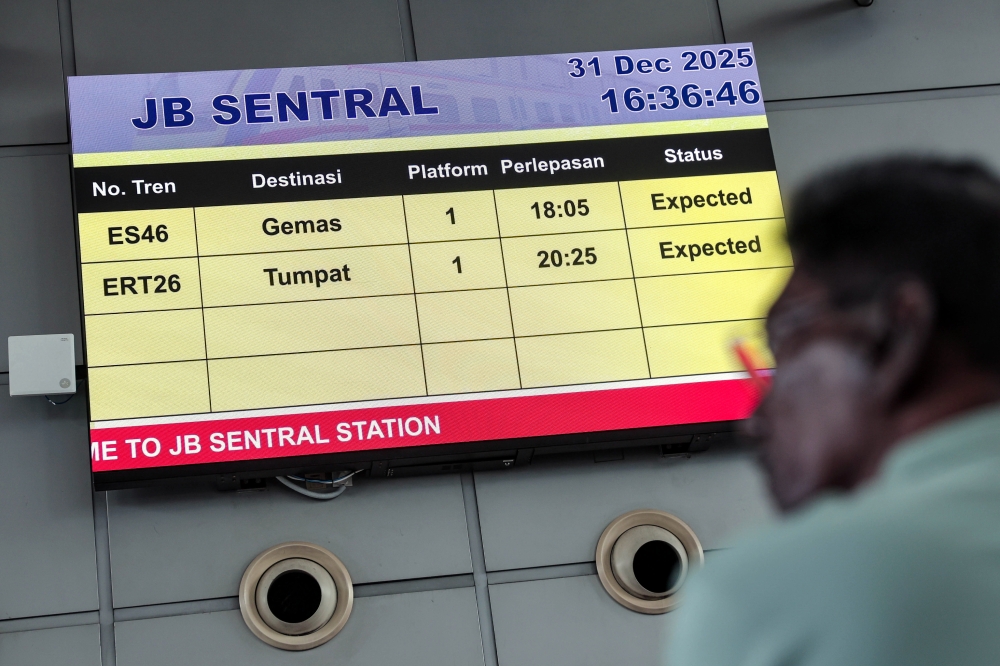PUTRAJAYA, Feb 9 — The Federal Court has today struck down 16 out of 18 provisions under the Kelantan Shariah criminal enactment as unconstitutional, ruling that the Kelantan State Legislature does not have the power to enact laws on said offences because there are federal laws covering the same.
Chief Justice Tun Tengku Maimun Tuan Mat, who is leading a nine-member panel of judges, delivered the majority verdict of 8-1 in the constitutional challenge filed by two Muslim women.
Chief Judge of Sabah and Sarawak Tan Sri Abdul Rahman Sebli was the only judge who dissented or disagreed with the majority.
The apex court's 8-member majority, however, ruled the remaining two provisions which were the subject matter of the challenge, namely Sections 13 and 30 of the enactment as constitutional.
Section 13 and 30 relates to the offence of selling or giving away a child to non-Muslim or morally reprehensible Muslim; and words capable of breaking peace respectively.
"Examining parties' submissions and applying the pith and substance test, we have decided that Section 13 and Section 30 are valid because both involved matters the state legislative assembly has power to decide upon; whereas the remaining challenged provisions are invalid as they involved matters under the Federal List where only Parliament has the authority to legislate.
"Therefore, we are allowing the petition for a declaration that the remaining provisions are nullified and invalid on ground that the Kelantan state legislative assembly enacted the laws on which it has no authority to do so," she said.
The full list of provisions ruled unconstitutional can be read here:
https://www.malaymail.com/news/malaysia/2024/02/09/list-of-kelantan-shariah-criminal-enactment-ruled-unconstitutional-by-federal-court/117178
Other judges on the nine-member panel are President of the Court of Appeal Tan Sri Amar Abang Iskandar Abang Hashim, Chief Judge of Malaya Tan Sri Mohamad Zabidin Mohd Diah; Federal Court judges Tan Sri Nallini Pathmanathan, Datuk Mary Lim Thiam Suan, Datuk Harmindar Singh Dhaliwal, Datuk Nordin Hassan and Datuk Abu Bakar Jais.
Nik Elin Zurina Nik Abdul Rashid, a native of Kelantan, along with her daughter Tengku Yasmin Nastasha Abdul Rahman, filed a petition directly with the Federal Court under Article 4(4) of the Federal Constitution, naming the Kelantan government as the sole respondent in this case.
The duo are challenging the constitutionality and validity of 18 provisions under the Kelantan Syariah Criminal Code (l) Enactment 2019, claiming that the Kelantan State Legislature does not have the power to enact laws on these offences because there are federal laws covering the same.
Through the court challenge, the two women are seeking the Federal Court to declare that 18 provisions of Kelantan’s Shariah Criminal Code (I) Enactment 2019 are invalid, arguing that the Kelantan state legislative assembly had overstepped its powers or had no powers to make such laws.
In allowing the petition, Tengku Maimun said the Federal Constitution's Ninth Schedule has clearly outlined what Parliament and what state governments can make laws on.
Under the FC’s Ninth Schedule, there are two different lists that say what the federal government — via Parliament — has powers to make laws on, and what the state governments — via their state legislative assemblies — have powers to make laws on.
List I is the Federal List which states what Parliament can make laws on, while List II or the State List provides a separate and shorter list of what state governments can make laws on.
"If the said provision's pith and substance legislated by the state legislative assemblies is included in the Federal List, then it has no power to enact that law.
"In other words, the powers to formulate both federal and state laws have been decided upon by the Federal Constitution and neither Parliament nor the state legislative assemblies can make laws beyond their scope of powers," she said.
In disallowing the two aforementioned provisions, Tengku Maimun said both Section 13 and 30 concerned legislations aimed at controlling the propagation of religious doctrines amongst those practicing the Islamic faith, where states are empowered to legislate on.
She said the court also took note of the petitioners' previous move to withdraw their challenge against Section 5 and Section 47(1)(a) — false claims and one's indirect presence in a gambling premises — before ruling that both provisions were now considered valid.
Separately, Abdul Rahman, the sole dissenting judge of the nine-member bench, ruled Nik Elin and her daughter were not competent to challenge to strike out the laws.
He categorised them as not having locus standi (legal standing) to file the petition, and said the application is a mischief, adding that they acted as a “phantom busybody”.
Abdul Rahman also questioned the absence of the federal government or the Attorney General's Chambers, noting that both should the proper parties to commence the challenge instead.
The judge also said it was wrong for Nik Elin and her daughter to institute their challenge and further noted the apex court had erred in granting leave in the first place to hear the merits.


















